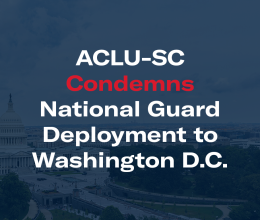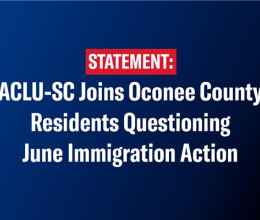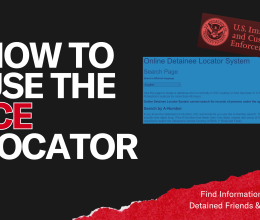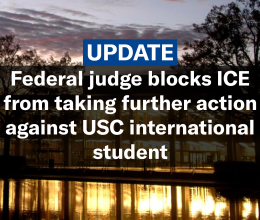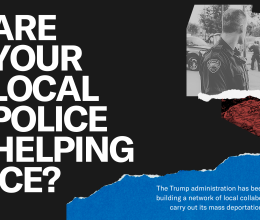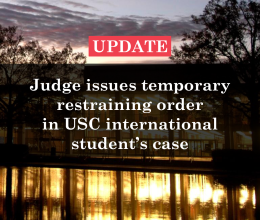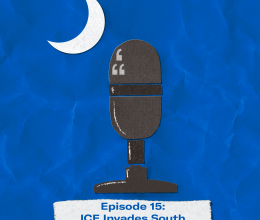
Charleston Post and Courier
February 6, 2013
Natalie Caula
Israel Ortega graduated from Stall High School about 10 years ago, but had no shot at going to college because he was in the United States illegally.
Recently, Ortega tried doing that at Trident Technical College, but said he was rejected by admissions officials who maintained that state law barred his enrollment.
On Tuesday morning, Ortega was back at the North Charleston campus with state and local immigration advocates in protest. The S.C. Immigration Coalition and the American Civil Liberties Union already have reached out to the South Carolina Commission on Higher Education to get some answers.
Trident leaders said they are abiding by state law and their hands are tied in the matter. They point to the state’s Illegal Immigration Reform Act, which bans people who are in the country illegally from attending and benefiting from public institutions such as Trident.
“We want to be the place of opportunity for all students who want to improve their lives through education and training. However, we have no choice when it comes to complying with state and federal law,” Mary Thornley, the college’s president, said in a written statement Tuesday.
Protests at Trident
Outside a brick building near the north entrance of Trident’s Rivers Avenue campus, Ortega was joined by Diana Salazar, founder of the Latino Association of Charleston, and Emma Lozano, president of Chicago-based Centro Sin Fronteras, which translates to “Center Without Borders.”
All three carried signs arguing against Trident’s rejection of Ortega and at least five others Salazar said also were turned away.
Ortega’s parents entered the country illegally more than 12 years ago with their son, and settled in South Carolina.
He is now married and his wife has a baby on the way. He has been working in construction since he graduated from high school.
He hoped to provide further for his family by attending Trident, so last year he applied for a permit through the Department of Homeland Security order, the Deferred Action for Childhood Arrivals, known as DACA.
“I just need an opportunity to be somebody in this country,” he said.
Ortega said he showed admissions officials his DACA card, but was turned away.
Trident’s dean of enrollment and management services, John Jamrogowicz, said the school is abiding by the law and that DACA “does not change the way we would interpret and apply the state law.”
Legal interpretation
In this case, ACLU of South Carolina Legal Director Susan Dunn said it’s clear that federal law trumps the state’s law and gives Ortega and other qualifying immigrants the right to enroll in college.
She said she doesn’t fault college officials, who simply may not understand the new requirements.
“I think the problem is that it’s not the documentation they’re used to seeing,” Dunn said.
That’s why the state’s immigration coalition and the ACLU have taken the matter to the S.C. Commission on Higher Education, and are waiting for an answer from officials.
The Post and Courier was unable to reach members of the state’s Commission on Higher Education for comment.
In the meantime, Jamrogowicz said, school officials must abide by the law as they understand it, until they are notified otherwise. “Our position is that Trident is not the agency that interprets how a particular state law should be applied.”

